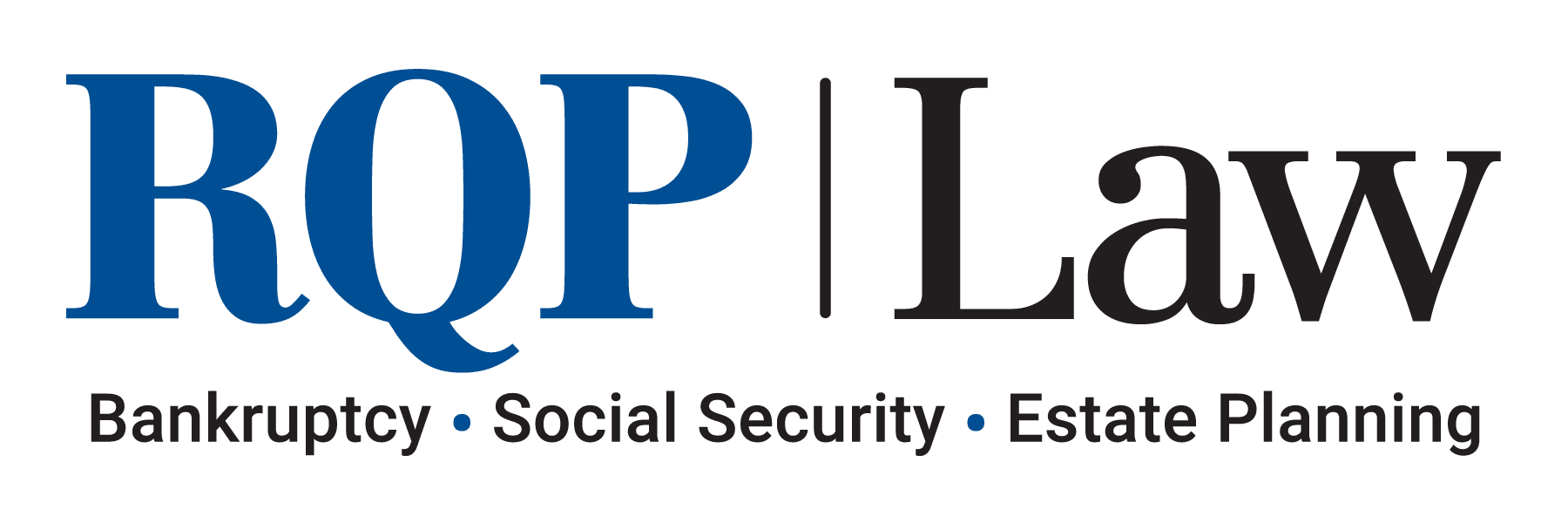Struggling Financially? Let us do the heavy lifting and relieve your burden.
Millions of Americans struggle with debt such as credit cards, medical bills, personal loans, taxes, judgments, or even past-due mortgage payments. These debts can spiral out of control quickly due to a job loss, illness, or just bad luck — but these debts can often be decreased or eliminated through bankruptcy.
At RQP Law, we reduce your stress by overcoming your debt while protecting your assets. We use legal strategy to get you out of debt and give you the best possible outcome! Our Montgomery, Berks, Chester, and Lancaster county attorneys use the power of the law to improve your finances and, in many cases, provide you a fresh start.
Schedule a FREE consultation with our bankruptcy attorneys in Pottstown, PA
Types of Bankruptcies
Chapter 7 bankruptcy
Chapter 7 of the U.S. Bankruptcy Code relates to unsecured debt — meaning debt that isn’t attached to a piece of tangible property (like a mortgage attached to a house or an auto loan attached to a car).
Examples of unsecured debt include credit card balances, court-ordered money owed, medical bills, personal loans, and some types of taxes. In most cases, you can discharge all of your unsecured debt through Chapter 7 bankruptcy.
Chapter 13 bankruptcy
Chapter 13 of the Bankruptcy Code allows individuals who receive regular income to adjust their debt. If you file for Chapter 13 bankruptcy, you can propose a repayment plan in order to pay your debts over time (usually a period of three to five years) while being allowed to keep your property.
Chapter 13 bankruptcy offers some advantages over liquidation under Chapter 7, depending on your situation.
What you should and shouldn’t do when filing for bankruptcy
When filing for bankruptcy,
YOU SHOULD:
✓ Disclose every asset
✓ Be honest, open, and forthright about all property that you own
✓ Tell us the truth about how you got into debt
✓ Let us know what concerns you have
✓ Share your financial goals with us
✓ Return our calls promptly and read all mail and emails from us
✓ Be open to our advice; we always have your best interests in mind!
✓ Be excited for a fresh start
When filing for bankruptcy,
YOU SHOULD NOT:
✓ Stress out — The process can be tough emotionally, but be confident that we’ll take care of everything that needs to be done
✓ Procrastinate — The earlier you get us any requested information, the better we’ll be able to represent you
✓ Hire a non-attorney bankruptcy service — Often called “bankruptcy mills,” these companies are rarely regulated or as successful as an experienced law firm
✓ Take out any kind of high-interest loan
✓ Live on credit
✓ Withdraw funds or loans from a retirement plan
Bankruptcy Resources
Understanding Lis Pendens in Bankruptcy: Property Rights Explained
Bankruptcy is often used when a person’s debts have become so large that they cannot possibly pay them all. This means...
How to File a Motion to Reopen a Chapter 7 Bankruptcy Case
So, you need to reopen a Chapter 7 bankruptcy case. Luckily, you are able to do so. However, it is a complicated...
The Chapter 13 Trustee in Bankruptcy
Chapter 13 bankruptcy involves the debtor participating in a repayment plan. Instead of making multiple monthly...
Schedule a FREE Consultation
Dealing with debt issues on your own is stressful. Often it’s best to turn to a law firm for help — but finding the right one can be confusing. We make that easier by offering free consultations.
We are pleased to meet with you in either of our Pennsylvania offices to discuss your financial challenges.
Primary Office
192 South Hanover Street
Suite 101
Pottstown, PA 19464
Satellite Office
Lancaster, PA 17603
